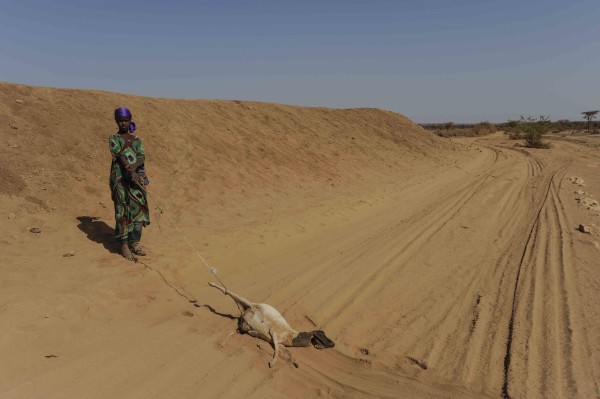UN agencies adopt unified humanitarian response in Puntland and Somaliland as drought persists

UN agencies have stepped up humanitarian response in Puntland and Somaliland to support communities cope with severe drought exacerbated by El Niño conditions.
The World Food Programme, WFP and UNICEF said Monday they have adopted a unified response to halt the deteriorating food insecurity and rising malnutrition in the affected areas, by providing an integrated package of life-saving humanitarian assistance.
UNICEF representative for Somalia Steven Lauwerier said the communities were facing dire conditions and that a coordinated response was imperative to avert further crisis.

“The communities have lived through four successive poor rainy seasons. Their ability to cope with the drought has been stretched to the limit,” said Steven Lauwerier. “Our concerted efforts are needed now to save the lives of tens of thousands of children and their families. Any delay from the international community will put their lives further at risk of hunger and disease.”
The two agencies said there have been malnutrition related deaths in Awdal region bordering Ethiopia adding that they are strengthening services at community level, deploying joint mobile health and nutrition teams to reach pastoral and hard to reach groups.
Humanitarian agencies last month appealed for emergency aid support of $105 million to respond to the fledging humanitarian situation in Somaliland and Puntland.
The two regions have experienced severe drought owing to El Nino rain effects following heavy rains in late 2015.
The government of Somalia has also mobilised resources to address the situation.

WFP country director Laurent Bukera said lives could be saved if immediate response is put in place.
“The people of Somalia know all too well the dangers of drought, but a drought does not have to mean a disaster – the world must recognize that we can save lives if we act in time,” said Laurent Bukera. “It is absolutely critical that we are able to sustain assistance to the people affected by this crisis, so we can stem the damage of under nutrition for mothers and children before it has lifelong consequences.”
So far, WFP’s emergency response has provided food assistance and nutrition support for 147,000 vulnerable people in the areas worst affected by the drought, and WFP continues to provide food or cash-based assistance to help families make it through the dry season. Together, the two agencies provide specialized nutrition support to prevent and treat malnutrition in pregnant women, breastfeeding mothers and young children.